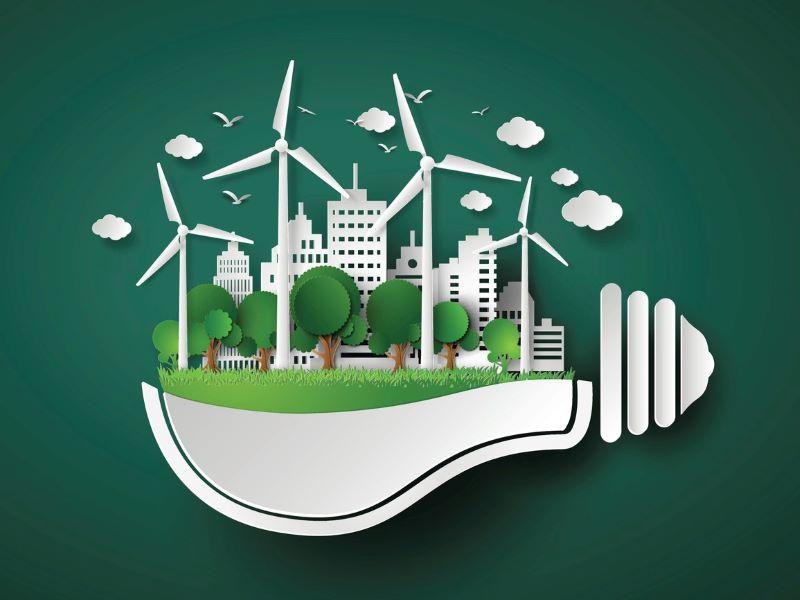
Charting a shared path to net zero universities

You may also like
Universities’ vast campus infrastructures and large populations of students, staff and commercial tenants can make them seem like miniature cities. And, like cities, these campuses contribute significantly to greenhouse gas emissions.
However, universities are well positioned to demonstrate crucial leadership in the global race towards net zero. They generally have control of their campus environment (unlike most city precincts, where assets are owned and operated by different parties), which gives them the ability to transform into net zero precincts at speed.
- We’ve engaged 250 student volunteers to hold climate emitters to account
- A holistic blueprint for sustainability
- Transformative not transmissive education for sustainability
They can demonstrate community leadership, innovate scalable solutions and address long-term financial and environmental risks. And they can form partnerships across research, industry and public institutions that amplify climate action. Universities also have engaged staff and students who are dedicated to combating climate change.
Reducing emissions on campus
Universities can act as living labs, testing solutions at scale within campus precincts. These solutions can then be deployed more widely, by amplifying success stories, driving knowledge and translating research to successfully replicate initiatives within our cities.
Initiatives that universities can undertake on campus to reduce emissions include microgrids, circular-economy principles and acting as change agents.
Develop campus microgrids and adopt renewable energy sources
A microgrid is an option if renewable sources are not already available in the local energy grid. This energy system serves a specific geographical footprint, such as a university or college campus. Typically, a microgrid consists of renewable energy generation (such as solar, wind or geothermal), energy storage and a smart grid. Often, it is paired with load management, ensuring that energy-intensive appliances and equipment are only used when the grid is generating electricity.
Universities can also: partner with other universities or local governments to establish a power purchase agreement (PPA), providing more substantial opportunities for investment; buy a green electricity plan (or similar) through an energy retailer; or install renewable energy infrastructure on campus (such as rooftop solar panels or biomass units). Institutions can look at innovative financing methods, which will help provide funding for such projects.
Other energy-wise actions include: promoting sustainable commuting, switching to zero-emission vehicles; encouraging eco-friendly business travel; and retrofitting campus buildings to be more energy-efficient by upgrading HVAC, lighting and other energy-consuming appliances.
Embrace circular-economy principles and implement material recovery initiatives
Circular-economy initiatives on campus can include material recovery, responsible procurement or diverting waste material from landfill through extensive recycling and composting schemes.
Circular business models initiated by staff, students or the local community (such as swap shops, selling campus furniture at discounted rates, donating books and clothes, renting machinery and tools) can be incubated on campus.
Universities can adopt sustainable procurement practices and influence emission reduction from their suppliers.
Serve as change agents
Universities can serve as change agents, engage with student bodies and foster net zero-aligned education, research and innovation.
Universities can also use their partnerships and reputation to encourage emissions reduction across the broader community and amplify change. Initiatives discussed in the Net Zero on Campus guide can be tested on campus before being projected to the surrounding community.
Students play a key role in developing bottom-up initiatives and bring their passion, energy and innovation to strengthen emissions reduction projects. Students are also able to take their learned behaviours and expertise in decarbonisation through to the workforce and their communities.
Universities play a key role in fostering the innovation needed to address decarbonisation via contributions to fundamental research, combining existing knowledge, education and training of engaged citizens and the next generation of leaders, creating space for open exploration of ideas and community involvement.
Other ways to build on research and innovation
- Build accredited teaching programmes at all levels of study and research activities; prioritise developing advanced curricula on decarbonisation solutions
- Develop training events focused on staff and/or students
- Lead public initiatives to communicate climate change mitigation and adaptation with the wider community
- Work with state and private sectors to build evidence-based policy and innovation centres.
Collaboration is critical
To overcome common barriers to implementation (such as difficulty in financing or resourcing initiatives or complicated institutional structure and management), net zero initiatives can be advanced through industry collaboration.
Universities can leverage their research capabilities to develop and deploy cutting-edge technologies and solutions.
By sharing lessons from their implementation of on-campus decarbonisation initiatives, universities can equip students, community and industry partners with the skills and knowledge necessary for replicating these successes.
Sharing best practices, resources and tools allows universities at the forefront of climate action to support those who are just beginning to decarbonise their campuses and cities.
Supporting net zero universities
More than 1,000 universities worldwide have joined the United Nations Race to Zero campaign to decarbonise their campuses. However, each institution will embark on a unique path to net zero. What’s been lacking until recently is the ability to bring universities together to share best practices, resources and tools, so that pioneers in the area can assist those beginning their decarbonisation journey.
To this end, the United Nations Sustainable Development Solutions Network (SDSN), in collaboration with Monash University’s Climateworks Centre and Monash Energy Institute, has published a Net Zero on Campus guide and online toolkit comprising case studies and resources. These resources detail campus initiatives to reduce emissions across energy, transport and mobility, buildings and facilities, waste management, and value chains through specific actions such as those outlined above.
Additionally, SDSN is fostering a vibrant community of practice, supporting its own network of more than 1,000 universities worldwide in aligning their campuses with net zero principles and technologies.
The guide, online toolkit and global community of practice through this initiative will provide invaluable support to universities and colleges worldwide. These resources empower educational institutions to accelerate decarbonising their operations and leverage their strengths as global change agents during this critical decade of action.
Shreejan Pandey is general manager of the Monash Energy Institute, and Bec Powell is a project manager in the Cities team at the Climateworks Centre, both at Monash University.
This is an edited version of the article “How universities can spearhead the net zero revolution”, which was published on Lens by Monash University on 20 April 2023.
If you would like advice and insight from academics and university staff delivered direct to your inbox each week, sign up for the Campus newsletter.


